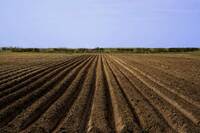- England
- Scotland
- France
- Holland
- Germany
- Italy
- Spain
- Portugal
- USA
- China
- Japan
- India
- Iran
- Advice
- Gardens
- England
- Scotland
- France
- Holland
- Germany
- Italy
- Spain
- Portugal
- USA
- China
- Japan
- India
- Iran
- Advice
- Garden Tours
Book: Landscape Planning and Environmental Impact Design: from EIA to EID
Chapter: Chapter 9 River engineering, channelization and floods
Farm drainage accentuates flooding.
When agricultural land becomes waterlogged, air is unable to reach the root zone, soil remains cold, germination is slow, cultivation is difficult and plants do not flourish. An appreciation of these simple truths has led European farmers to undertake drainage works at least since Roman times. In periods of agricultural prosperity the works have proceeded apace; in periods of depression they have been neglected. The periods of great activity, 1840ï¾1880 and 1940ï¾1985 for England, were when technical developments occurred and government finance was available. The antiquity of land drainage has resulted in a legacy of special laws to help farmers and engineers undertake the work. England's 1833 Sewers Act enabled Commissioners, who had to be landowning farmers, to define drainage districts and levy a financial charge. Comparable legislation established Water Management Districts in Holland, and Drainage Districts in the USA (Smedema & Rycroft 1983: 111). British farmers retain their dominance on the authorities responsible for the administration of land drainage. An article in Political Studies described a successful rearguard action fought in 1973 by the National Farmers Union, in cahoots with the Ministry of Agriculture Fisheries and Food (MAFF), to prevent the new Water Act from giving control of farm drainage to the Department of the Environment. It reports that MAFF 'shared the distaste of the mainstream land drainage lobby for the proposed large multiï¾purpose authorities' (Richardson et al 1978). Multi-purposism is anathema to the beneficiaries of single-purposism. During the 1981 debate on the Wildlife and Countryside Act, Lord Buxton declared the old laws entirely obsolete, though the Ministry 'appears to operate in blinkers labelled "increased agricultural production" and to pursue blindly that objective': The Government, surely, cannot possibly condone individual citizens, however worthy, levying rates on other citizens without any official pattern or objective scrutiny, ... entering people's property without any notice; spending huge sums of taxpayers' money without any proper supervision or assessment of the consequences; and finally, declining to reveal any of their statistics, documentation or calculations (Parliamentary Debates 1981). Conservationists generally oppose agricultural drainage because of the adverse sideï¾effects on fauna and flora. Increased soil fertility enables agricultural plants to flourish but reduces wildlife diversity. In 1984, a book published by the Institute for European Environmental Policy confirmed 'the widespread view that wetlands are amongst the most threatened of European habitats and that drainage is one of the prime causes of this' (Baldock 1984). In 1993 a publication by the International Union for the Conservation of Nature (IUCN) commented that 'Wetlands have been treated with such hostility by many human societies over so many years that their conservation seems almost counter-cultural' (Dugan 1993:8). In America, after catastrophic losses, wetland destruction has been halted and new wetlands are being created (Kusler & Kentula 1990). Wetlands are rich in wildlife and have a vital role in flow regulation. British water authorities were first advised to take account of conservation in 1963. It became a passive duty 'to have regard', in 1973, and 'to further the conservation and enhancement of natural beauty and the conservation of flora, fauna and geological or physiographical features of special interest' in 1981 (Wildlife and Countryside Act 1981). The public inquiry into the drainage of Amberley Wild Brooks caused all authorities to take the subject seriously. It is a most beautiful area, especially when partï¾flooded [Fig 9.3]. In 1977 the Southern Water Authority submitted a pumpï¾drainage scheme to the Ministry (MAFF). It was based on an estimate of the financial cost of the scheme and an economic appraisal of the benefits which might accrue to farmers. No attempt had been made to assess the environmental damage which the scheme might cause (Penning-Rowsell 1978). Local residents and conservation groups protested against the scheme and the result was Britain's first public inquiry into a land drainage scheme. The Inspector, who was a town planner and engineer, recommended that the scheme should not be grantï¾aided. His advice was accepted and the Amberley Wild Brooks have not been drained. A research group at Middlesex Polytechnic, which carried out the benefit assessment of the drainage scheme, observed that 'high but inexplicit economic value was put on the conservation significance of Amberley Wild Brooks.' (Parker & Penning-Rowsell 1980). The Amberley Inquiry was a landmark. Using public funds to destroy public goods for private gain was, at last, judged improper, if not wicked.
